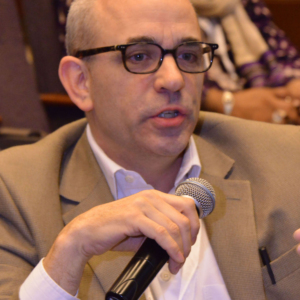Richard McGregor
- Fellowship Dates 2021-2022
- Research Topic Text and Ritual in Medieval Islamic Piety
- Fellow or Grant Type Bureau of Educational and Cultural Affairs
- Affiliation Post-doctoral candidate Professor and Chair, Religious Studies, Vanderbilt University
In the study of Islamic religious history, a clear divide has persisted between approaches that seek to recover daily lived practices and others that explore the record of written expression. This project explores the overlap of these dimensions in the Mamluk and Ottoman periods, focusing on the manuscript documents of the period and the institutions in which they operated. The project surveys a series of manuscripts along with their associated ritual spaces in order to recover evidence for interactions with texts as devotional objects. The practice of bodily interaction with texts in fact took many forms. Not only were illustrations representing, for example, the Prophet’s tomb in Medina rubbed and kissed, but sometimes names were similarly treated. Tracings of the Prophet’s sandal were made from at least the 14th century and quickly moved from being representations of an actual sandal relic to being copies of copies. Several manuscript examples of such tracings circulated in Cairo and were associated with various riwaqs of al-Azhar. The record of bodily interaction with devotional texts can also be recovered through the examination of marginalia and in-text comments and commentary added to manuscripts. These often take the form of pious notes, supplications, interpretations, and additions to the text. In exploring these materials, the unique nature of each manuscript is brought into focus. This allows us to retell the story of each manuscript by bringing much of its ritual history into focus. Additionally, important dimensions of institutional context can be illuminated. These annotated devotional texts were often housed in madrasas – a fact sometimes recorded on them, along with the names of their copyists – and used ritually. How devotional texts were stored, displayed, and marked, not only opens new perspectives on devotional life, but also helps us to rethink the role of madrasa libraries and other manuscript archives, shining light on them as ritual and devotional spaces.
